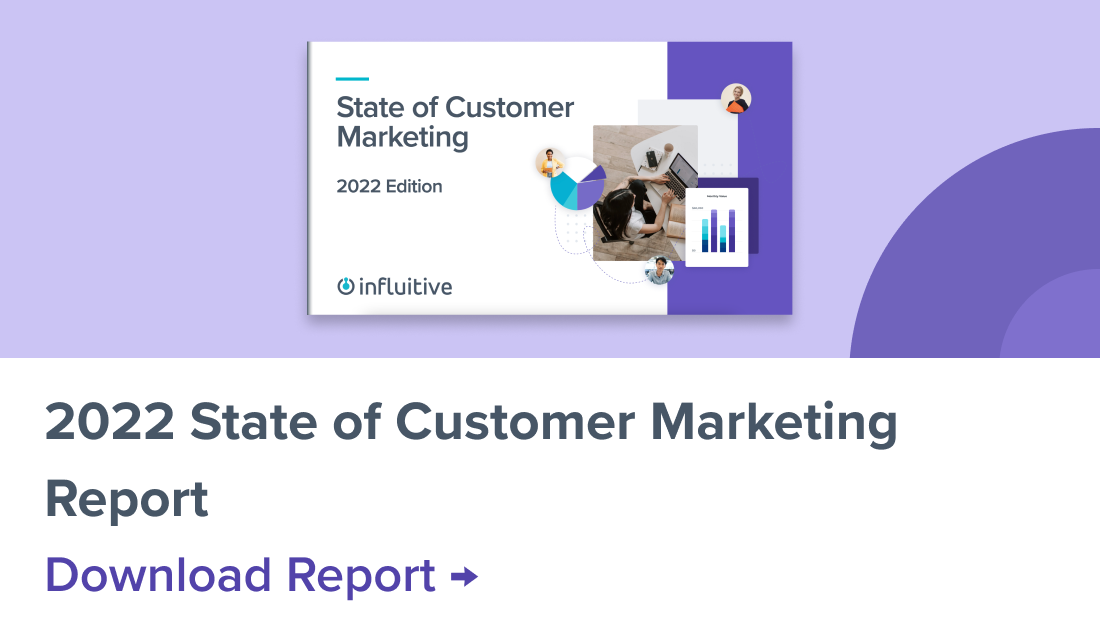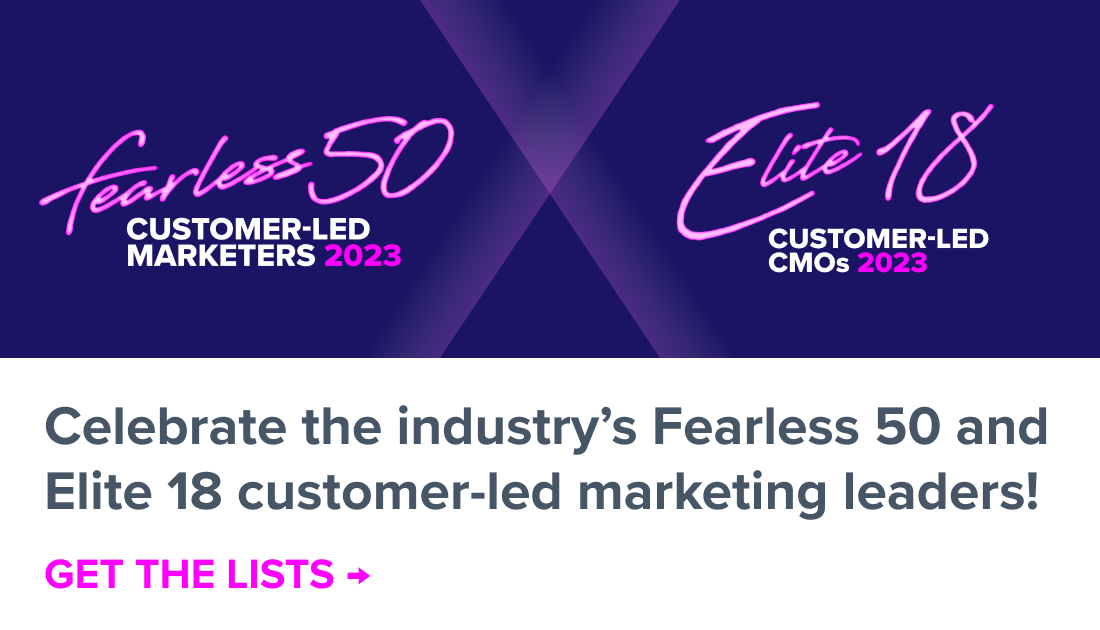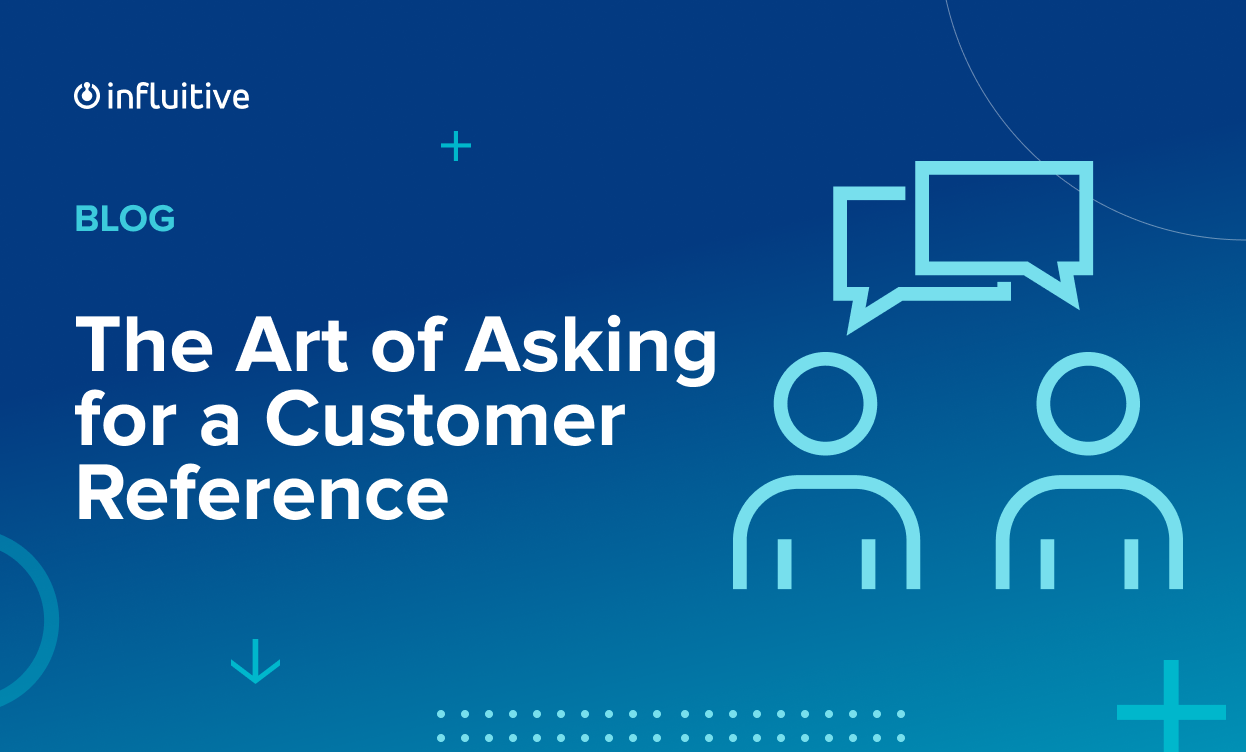Picture this: it’s nearing the end of the quarter, and your sales team is within reach of their targets. Evaluations are done, sales reps are in closing mode, and all that stands in the way of a historic three months are a few customer references. Panic time? Of course not.
Asking for a customer reference is tricky. It’s awkward for most people—after all, you’re asking somebody who already pays you money to go out of their way for something you need. People assume that customers don’t want to be references, so they treat them that way: delicately, cautiously, nervously.
If you are doing this (or if you’re not asking at all) you’ve got it all wrong. Here’s our advice for successfully asking for a customer reference.
A reference is not merely a favor
If you haven’t done it before, volunteer to be a reference for someone else. Find a vendor you like, reach out to them, and volunteer. While you may be amazed at how nicely you’re being treated, you’ll quickly realize that there are big benefits to being a reference for a company.
As a marketer looking to make “the ask,” these benefits are your most important asset.ou really love and support. It feels good to say ‘way to go for being awesome, company that I love.’”
What’s in it for them
It helps to know why your client would give you a reference in the first place. It’s almost always for one of these reasons:
- They love your company, the product, and the people who work there and want to see you succeed
- They get to expand their network and meet interesting people who can help them
- They get special treatment, plus the opportunity to promote themselves and their successes with your company or product to a peer
Once you understand which one of these motivates your customers, it’s a lot easier to ask for their participation
The wrong way to ask for a reference
Here’s a typical request for a reference. Caution: just reading this might give you second-hand embarrassment.
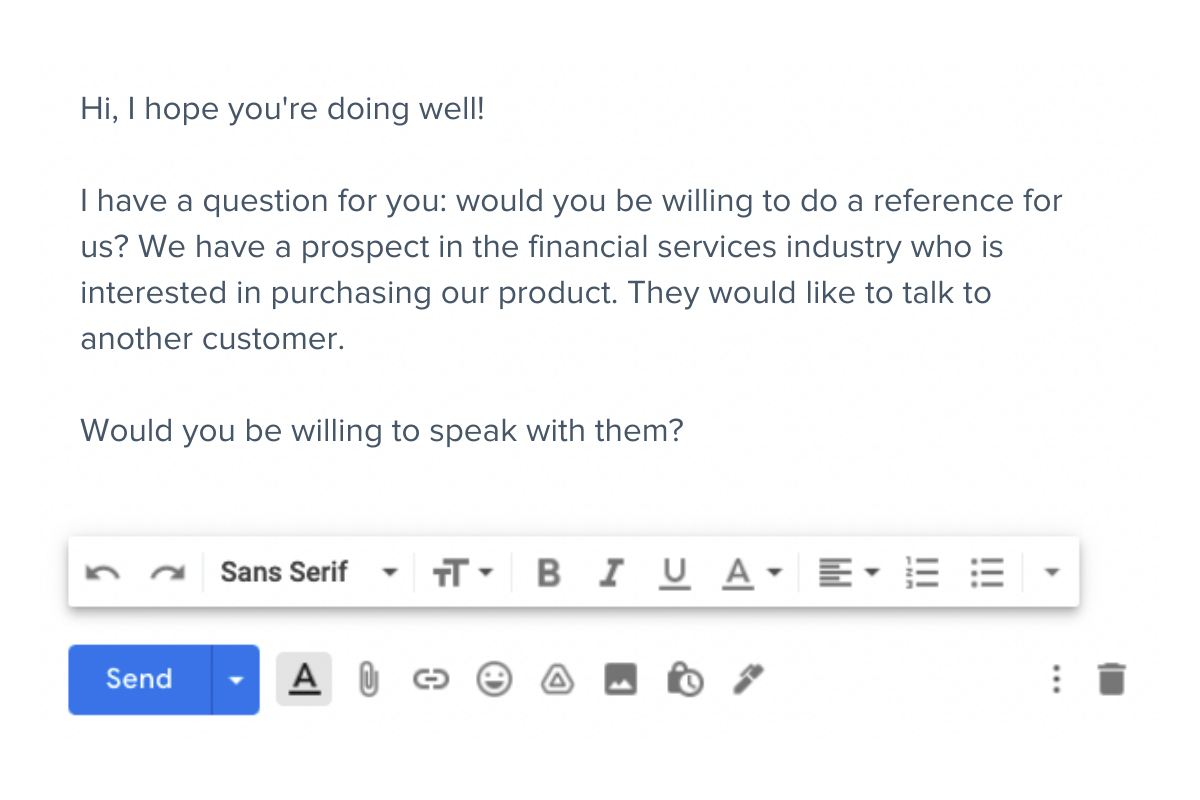
Notice that the request:
- Is framed around “we” and “us,” (not “you”)
- Contains no noted benefit for the customer
- The requestor assumes that the customer will say no, and is clearly asking for a favor
Asking for customer references this way is just plain weak—no wonder people are scared to do it!
How to ask for a customer reference
When I do a reference, I try to ask only the people who I think would be interested in speaking with the prospect in question. This could be because of a similar background or interest, or because I see two people who I think might potentially get along. I also give my customers some detail about the person they are going to be speaking with to make my request more personalized.
Compare the previous request with this one:
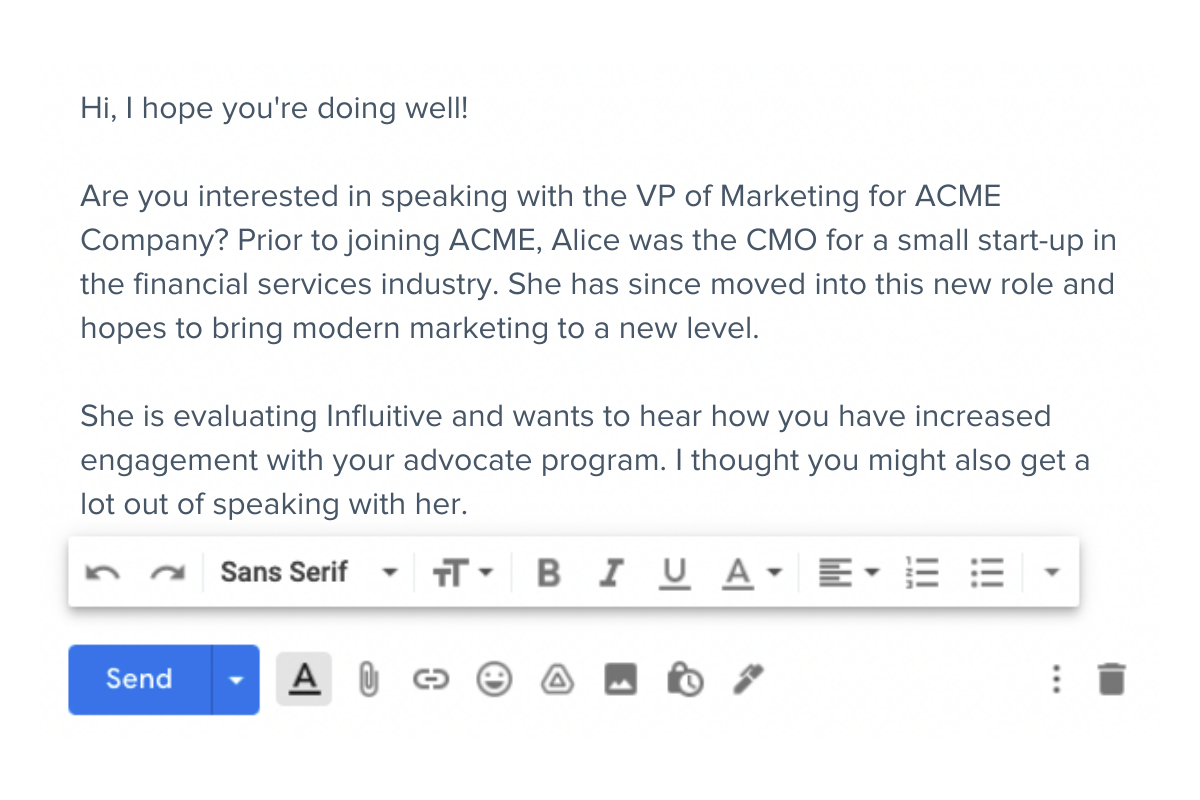
What’s different now?
- The entire request is framed around “you”
- Clear statements of value and benefits for taking the call
- Tone that suggests, “I have an opportunity for you—why wouldn’t you take it?”
In my experience—they usually do take the request, and they like you better for it.
Customer references are about relationships
Marketers often avoid asking someone for a reference because there are recent customer support tickets in their account. It’s one of the first questions people ask when trying to identify a reference: “Are they having support issues?”
However, being a reference is about much more than just the customer’s use of your product.
In fact, it’s not uncommon for people who have placed support calls to serve as amazing references—specifically because they have stronger relationships with the company.
If you take care of your customers, they will reciprocate. You need to know their disposition in advance but don’t avoid them just because they have had a problem in the past.
One of Influitive’s top advocates once shared that they’d always do a reference call for one of their vendors because they like to meet new people and learn from them, regardless of their personal feelings about the product. See, it’s not always about you.
Be bold: you’ve got a lot more advocates than you think
Go for the ask—and do it personally. What you’ll quickly realize is that you’ve got a lot more referenceable customers rooting for you than you even thought—and there’s nothing more powerful than an army of brand advocates to boost your sales & marketing engine.
Don’t be shy. It’s a win-win.
This blog post was originally published December 2012, and was most recently updated on June 30, 2023.








